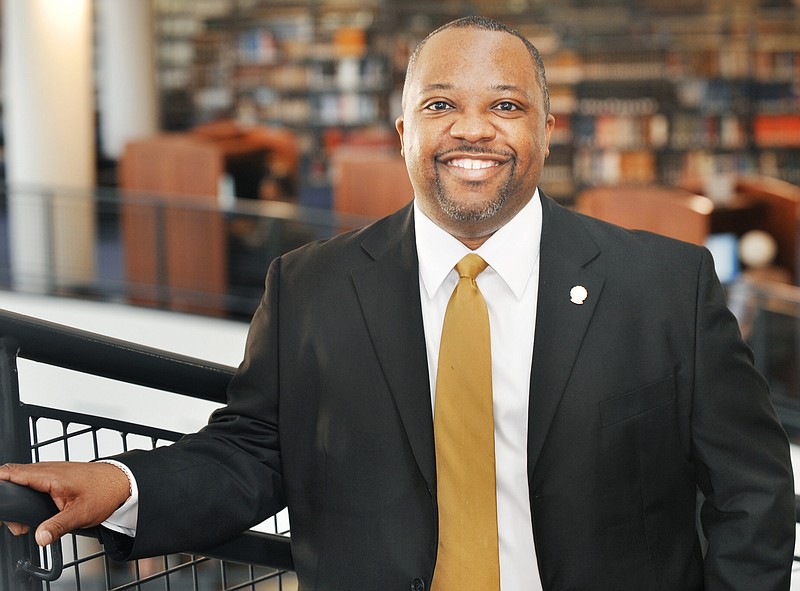Chicago native Jerome Offord Jr. came to Lincoln University in 1989 as one of the first graduates of that city's newest high school - for Agricultural Sciences - and he graduated from LU four years later with a bachelor's degree in agriculture.
Just over a year ago - and 17 years after leaving Jefferson City - Offord returned to succeed Elizabeth Wilson as the head of LU's Inman Page Library.
He decided to return because "I love the school, the mission is still strong and the (educational) need is there," he said. "And I always dreamed about coming back and giving back to Lincoln."
He returned to do a job he never considered when he was a student and, he noted, one of Liz Wilson's many legacies at LU is a minor in library science.
"I think in the profession (today), that's one of the things we're battling," he said, "that a lot of students don't know that library science is a career path that they can choose."
It's especially an important challenge since more and more of the baby boomers who entered the field in the 1960s and '70s are retiring, leaving "plenty of room for growth and opportunity," Offord predicted.
"We're having more and more "techies' come into the profession, and folks who are just gadget-happy and enjoy really leading libraries, dealing with the issues, jumping into the trenches and having fun."
Still, he said, most librarians are women - with men holding only about 23 percent of all jobs, and only about 10 percent of the jobs among minority librarians.
Books as we know them won't disappear from library shelves or from a librarian's job, Offord said, but one of the modern obstacles is expanding collections to include digital media of many kinds.
"I think (today's students) are just reading differently" from previous generations, Offord said. "The challenge that we have - and one of the reasons why we've started information literacy courses - is that this generation, unlike any other generation before, has access to so much information that it's overwhelming.

